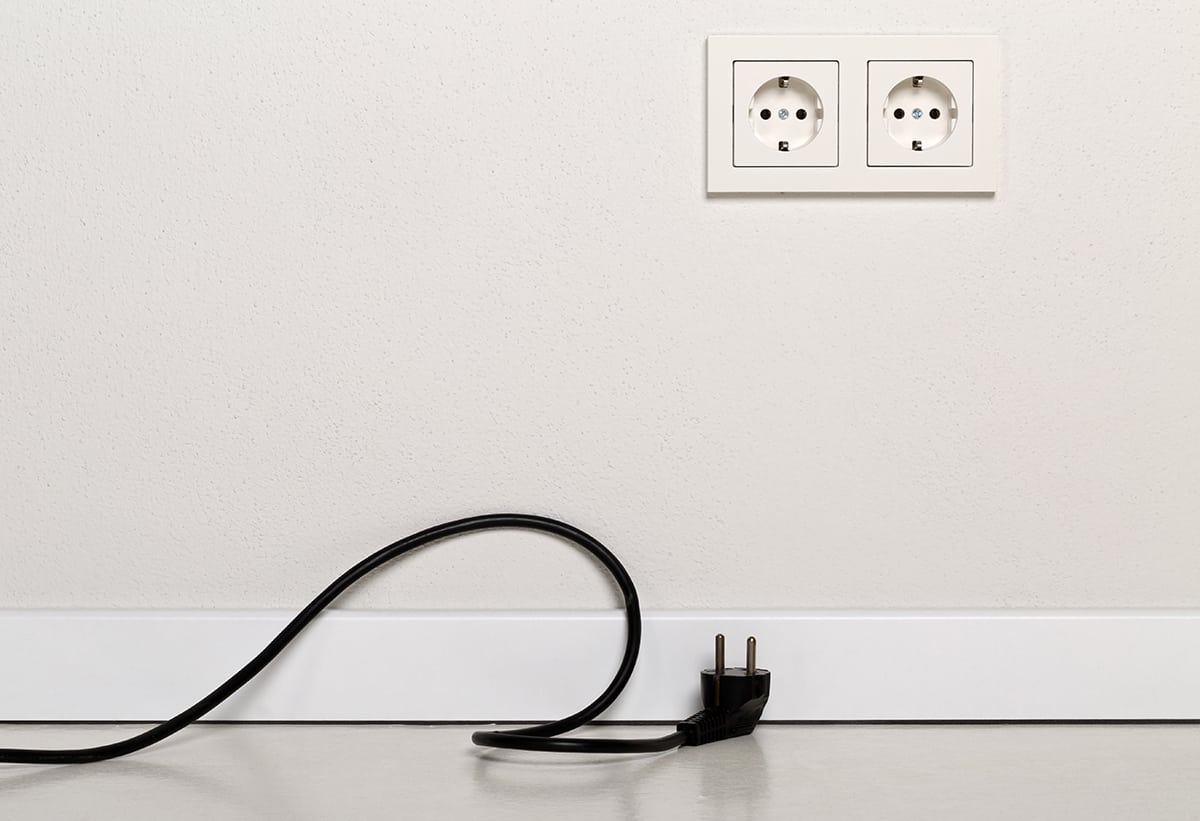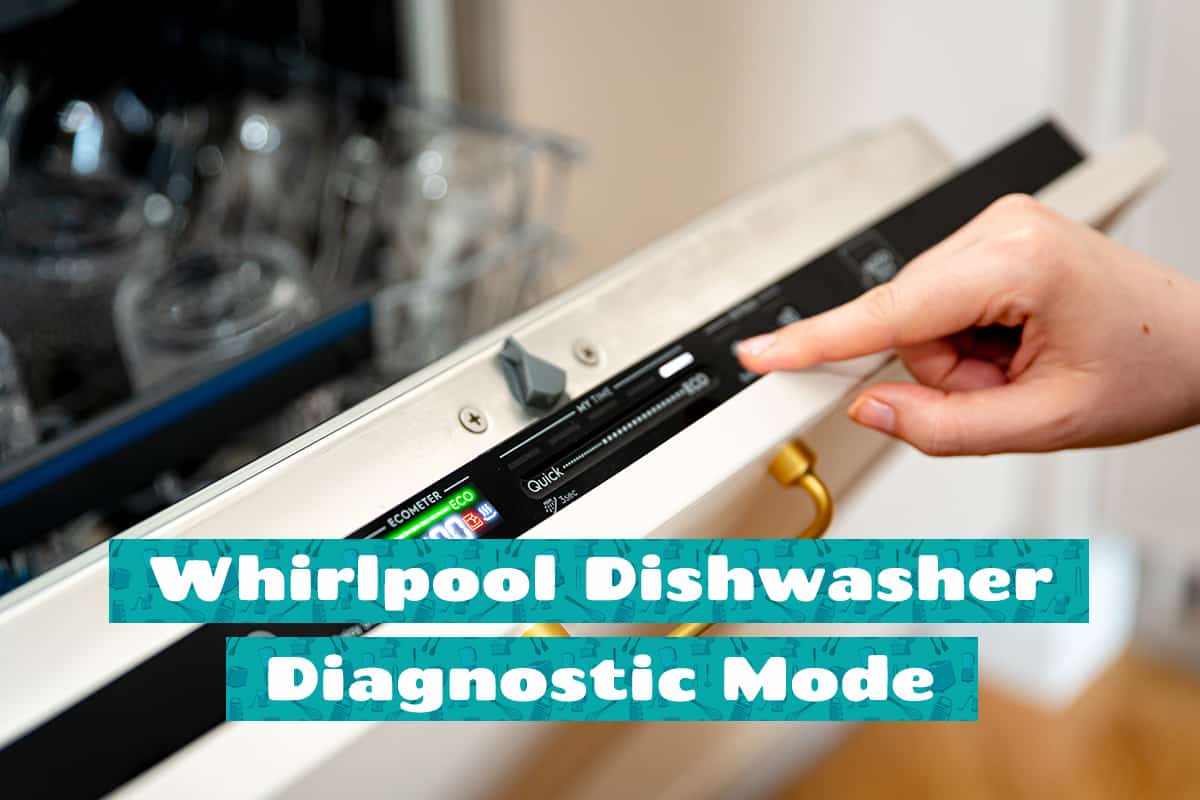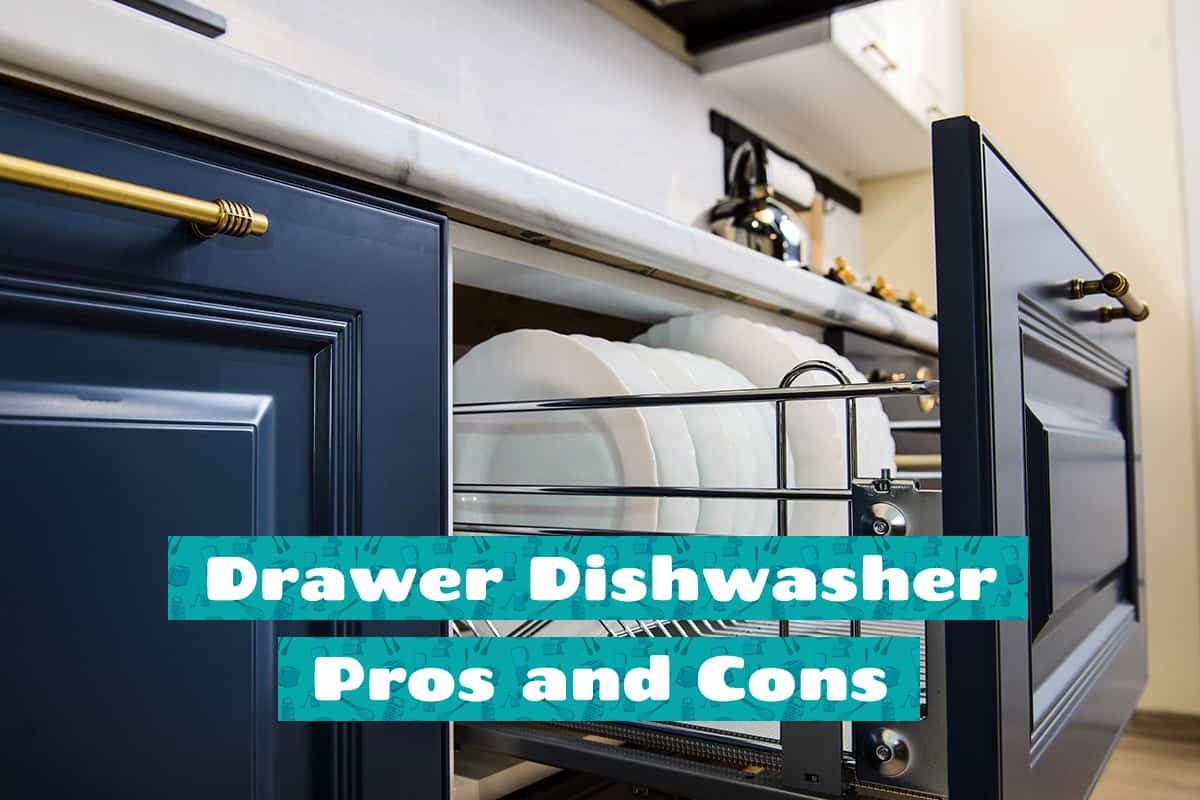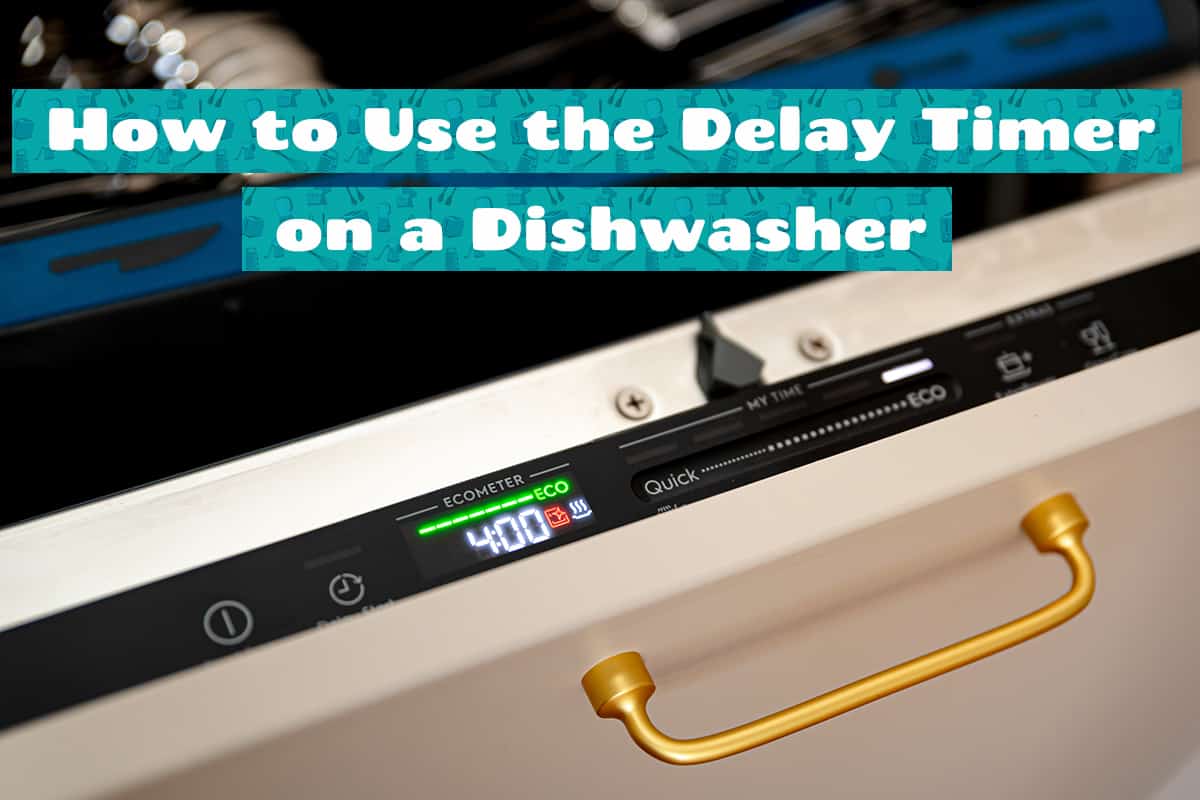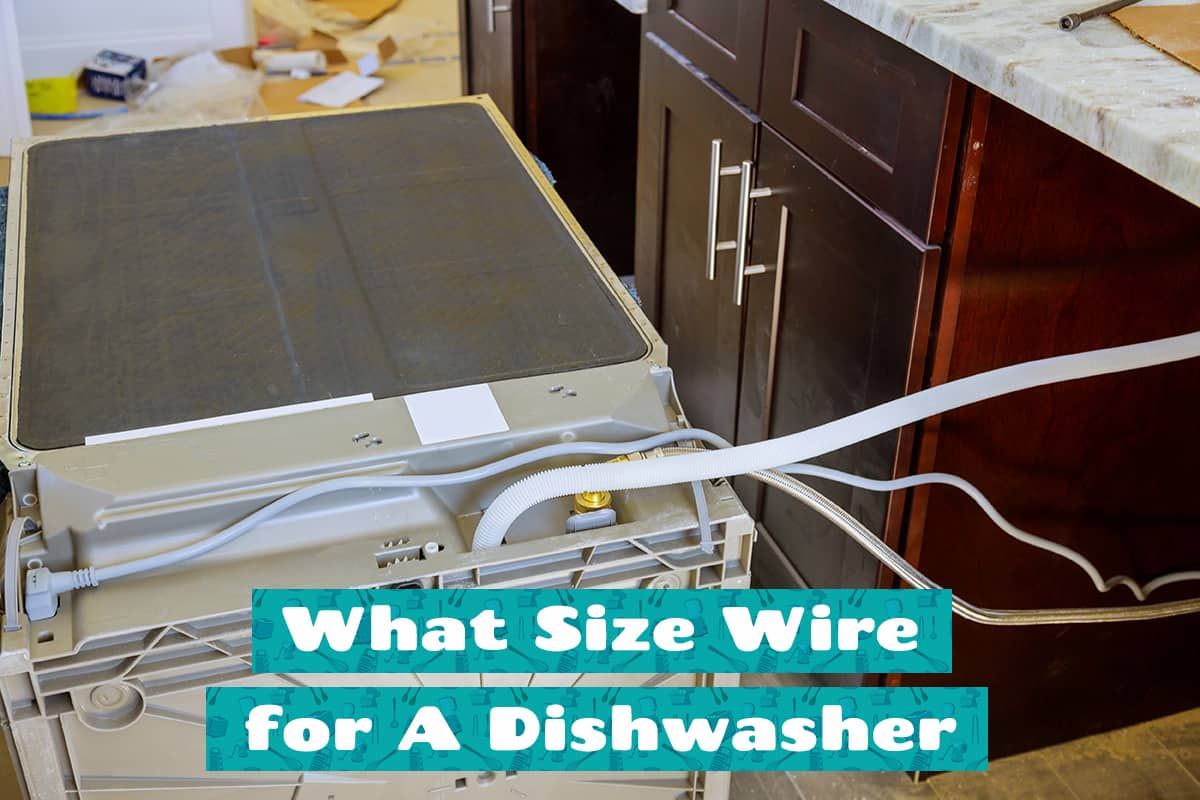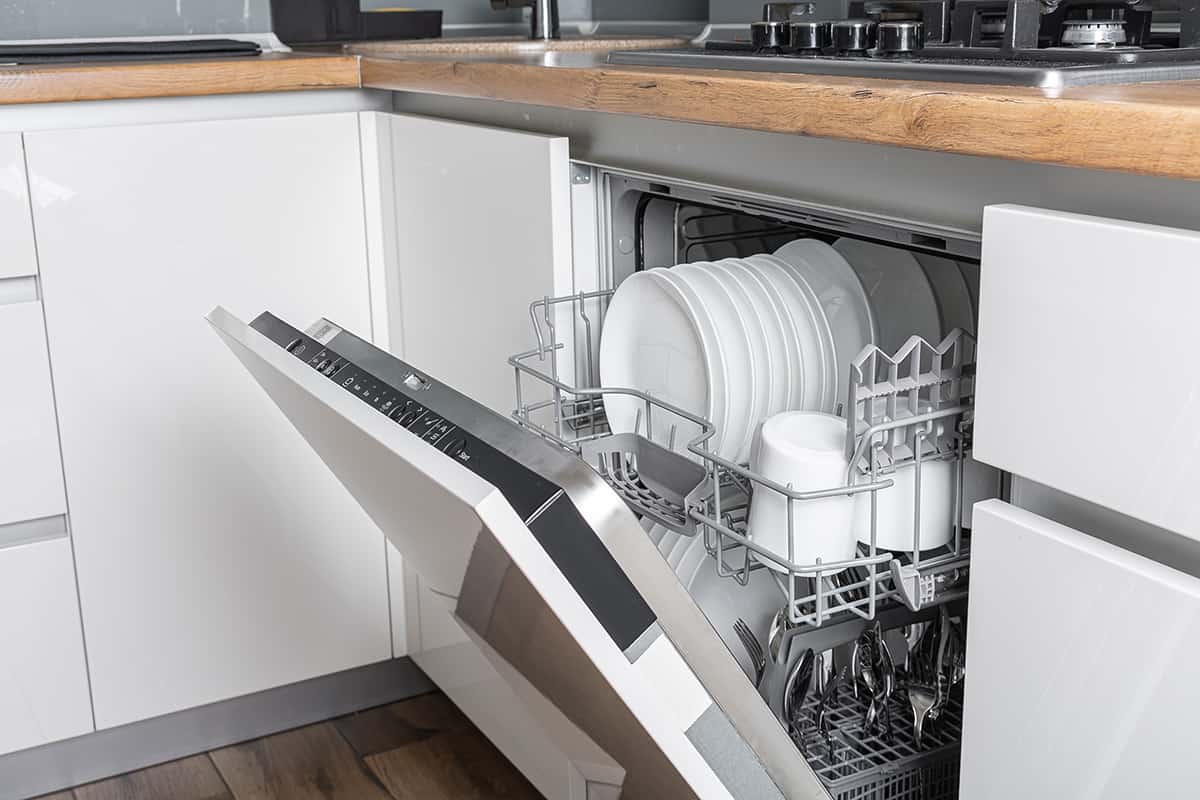Remodeling a kitchen is no mean task, but it does give you a chance to cover up any mistakes you made in the past. For instance, you now have a chance to hardwire your dishwasher to your home’s electrical system. But when doing this, should the dishwasher have its own circuit, or can it be hooked to the same circuit as other electronics?
Dishwashers should have their own circuit with at least 15 amps. Sharing a circuit increases the risk of overloading the circuit, causing everything to shut down at once. So, a dishwasher should not share a circuit with other high-power appliances, lights, fixtures, or outlets.
In this guide, I’ll explain why a dishwasher needs its own dedicated circuit, whether or not you can plug a dishwasher into a standard receptacle, and what other kitchen appliances deserve their own dedicated circuit.
Does a Dishwasher Need a Dedicated Circuit?
You may have heard or read somewhere that it’s completely fine to connect a dishwasher and another power-hungry appliance, such as a 20-plus-amp fridge, to the same circuit is fine. Either the person who told you that is misguided or they’re lying through their teeth because doing this is anything but fine.
Large household appliances, including but not limited to dishwashers, should have a dedicated circuit. This is to provide enough energy to the appliance without it tripping the circuit or—worse—potentially causing sparks and leading to housefires. If you connect more than one high-energy appliance to the same circuit, you’re putting your home’s electrical system at risk of overloading.
How Many Amps Does a Dishwasher Use?
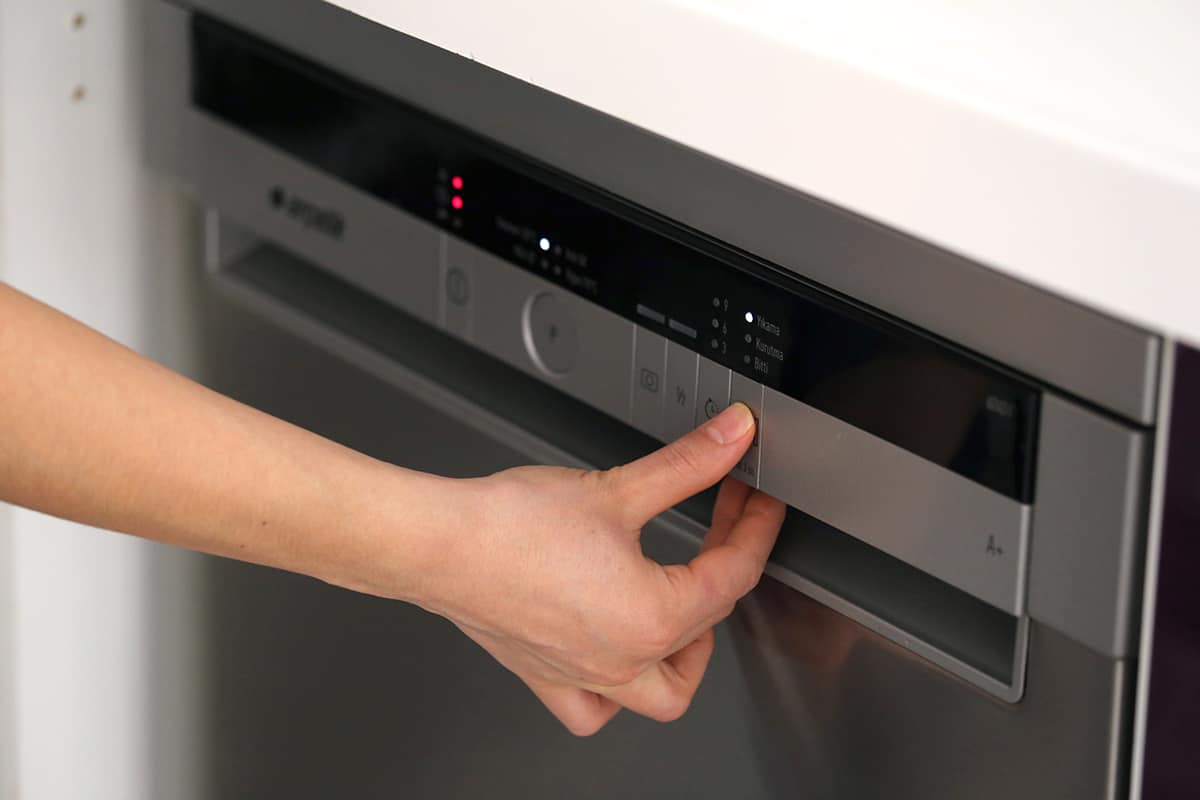
Now, you’re probably wondering why this is the case. It’s all simple math, really. Dishwashers usually surge at 2400 watts and have a stable running wattage of 1800. Most household circuits are designed to handle 15 to 20 amps of power. If we multiply the amperage by the voltage to get the wattage rating, we can see that a 15 and 20-amp circuit allows for…
15 amps × 120 volts = 1,800 watts
20 amps × 120 volts = 2,400 watts
…just enough power to operate a dishwasher.
If you try to add another high-power appliance to the same circuit—e.g., a fridge or a built-in microwave—you’re leaving very little room for each of the appliances to surge. When the circuit reaches its maximum wattage rating, at the very least, it will trip the circuit and cease all operations.
When in doubt, consult the electrical code or ask someone who has knowledge in the matter—for instance, a trained electrician or appliance technician.
What Is the Electrical Code?
The electrical code, or the National Electrical Code (NFPA 70) in the United States, is a benchmark for safe electrical design, installation, and inspection. The goal is to ensure the protection of people and property from electrical hazards, which includes using the right materials for installing household appliances.
The NFPA 70 states that dishwashers should have a dedicated 120/125-volt, 15-amp (at least) circuit. It’s also safe to plug dishwashers into a 20-amp circuit with a 12/2 NM wire and ground. If this sounds like a bunch of mumbo jumbo, you’re not alone, but your electrician should have a clear idea of what all of this means.
It’s safe to connect a dishwasher and a garbage disposal to the same circuit provided that the circuit is 20 amps and that running both appliances simultaneously uses 80% of the maximum amperage at most.
Benefits of a Dedicated Circuit
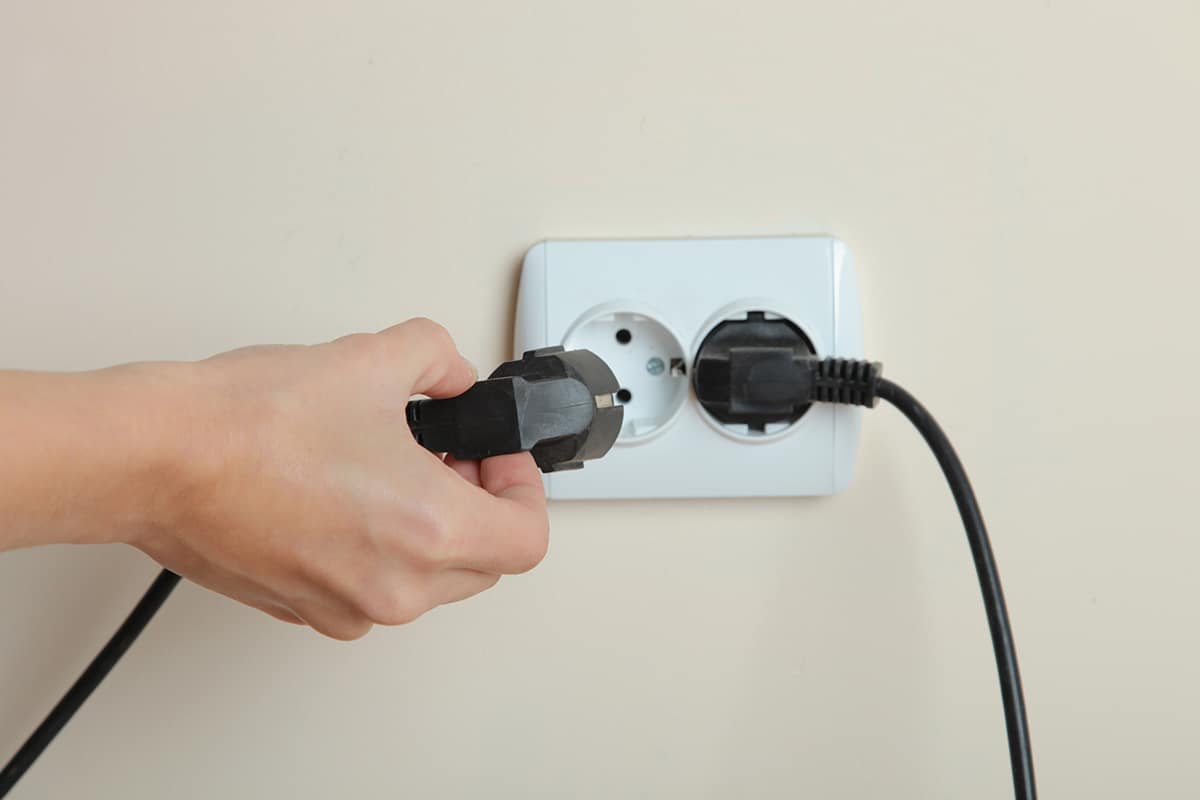
Apart from there being a legal requirement for certain appliances to have a dedicated circuit, there are a few practical benefits, which I’ll discuss below.
Safety
The main purpose for giving an appliance a dedicated circuit is to maximize safety and protection. Best-case scenario, running multiple power-hungry appliances on the same circuit will cause the breaker to trip, which is what it’s supposed to do when there’s too much power surging through the circuit. However, disregarding this can cause your appliances to overheat and possibly catch fire.
There are certain dishwasher problems that can cause the circuit to trip. For instance, if the heating element is on the fritz, or if water makes contact with any of the live wires (extreme but still a possibility). In such instances, having a dedicated circuit will protect not just the dishwasher but also your home and everyone in it.
Special wiring
Something you might not be aware of is that power-hungry appliances have specific wires that are designed for specific amperages. Another way to put it is that larger wires allow for greater amounts of electricity to flow. Connecting different appliances with different wiring specifications to the same circuit can spell disaster in the long run.
Separation
By giving a dedicated circuit to a specific kitchen appliance, you can ensure that electrical faults in one machine will not affect another. Even though modern dishwashers have a ton of fail-safe features in place, that doesn’t mean it’s invincible against all electrical problems. And on the off-chance your dishwasher goes haywire, the problem will not spread to other devices since it has its own dedicated circuit.
Can a Dishwasher Be Plugged into a Standard Receptacle?
As you can see, there’s a ton of work (and math) that goes into hardwiring a dishwasher to your home’s electrical system. So, can you forget about all of that and plug it into a standard receptacle instead?
Yes, you can, as long as the receptacle is grounded and has the proper breaker (15 or 20 amps).
Most modern dishwashers do not have a plug. They’ll come with an open-ended power cord, so you can decide whether or not to hardwire the unit or attach a plug and connect it to any ordinary receptacle.
Do I Have a Dedicated Circuit?
Not sure whether or not you have a dedicated circuit for your dishwasher? The simplest thing you can do is to go down to your basement and inspect the circuit box. There, you’ll find labels that indicate which circuits are dedicated and which aren’t.
While you’re at it, you might as well inspect which dedicated circuits have multiple appliances connected to them. If you find such a circuit, then you should contact your electrician right away to see what they can do about it.
In many homes built in and before the 1970s, you may have trouble distinguishing dedicated circuits from shared circuits. Again, the best thing you can do is to contact your electrician. You can also try flipping individual circuit breakers and on to see which appliances are connected to which circuits.
If your home doesn’t have a dedicated circuit for your dishwasher, then you will need to get one installed. It’s not a cheap process since the cost of materials and labor are quite high. Expect to spend $600 per dedicated circuit on average, but it can be as low as $250 or as high as $1,500, depending on the difficulty of the task.
What Kitchen Appliances Need a Dedicated Circuit?
Here’s a brief list of kitchen appliances that need a dedicated circuit:
- Refrigerators
- Standalone freezers
- Electric stovetops
- Electric ovens
- Furnaces
- Heat pumps
- Washers
- Dryers
- Garbage disposals
- Sump pumps
- Built-in microwaves
- Toaster oven
- Deep fryer
It’s better to have a dedicated circuit for each of the aforementioned appliances than it is to share a circuit and pray that you don’t operate multiple appliances at once. Again, installing a single dedicated circuit can be costly, but it sure beats the alternative—putting your home at risk of an electrical fire.
